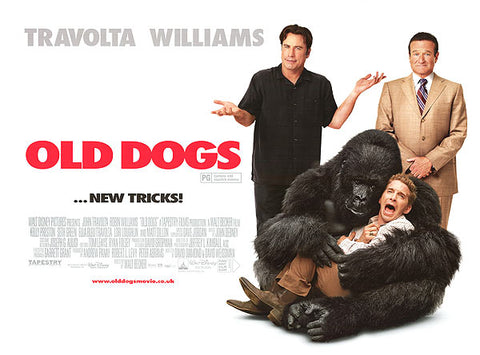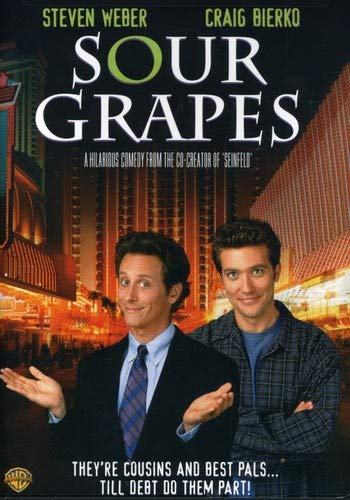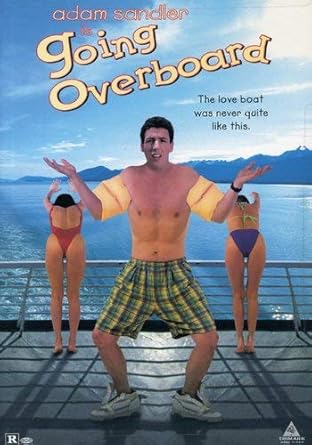After watching last week’s episode of Only Murders in the Building, I was in the mood for a good Steve Martin movie, but found it difficult to make a selection. Maybe The Jerk? Seen it a million times. Planes, Trains and Automobiles? I’d rather wait for Thanksgiving. Then I got to All of Me, the movie where half his body is possessed by a dead woman. At first, this seemed like exactly what I was looking for — a silly 1980s Steve Martin movie that I remember liking, but don’t remember all that well — but the way he was shrugging his shoulders on the poster just made me roll my eyes in contempt.

There’s something about shrugged shoulders that seems to scrape the bottom of the comedy barrel — the image is desperately trying to say, “Oh boy, there are going to be hijinks in this movie!” But with all kinds of curious happenings in every film genre, why are comedies the ones that so often turn to this device? Body-language expert Patti Wood has a guess. “Shrugging is the kind of thing a teenager does when a parent calls them out on their behavior, and many comedy movies feature older men playing comedy for a younger audience,” she tells me. “By shrugging, the implication is that they’re innocent of whatever’s going on in the movie.”
With Wood’s words in mind, I wanted to explore this trope a little more deeply to see if she was right, as well as to determine when all of the shrugging began. So, going further and further back in time, I dredged up the worst shrugging posters in comedy history to find out exactly what kind of hijinks these bewildered funnymen had gotten themselves into.
Delivery Man (2013)

Who’s Shrugging: Vince Vaughn
The Hijinks: Vaughn plays a slacker who donated his sperm to a fertility clinic 20 years ago and is then shocked to learn that he’s become the father to 533 children. While the movie’s trailer seems to lean into the saccharine, “I’m going to be a dad now” device, the poster highlights the notion that Vaughn is a clueless, overgrown man-child (which is pretty much the same character he plays in all his movies).
Killers (2010)

Who’s Shrugging: Ashton Kutcher
The Hijinks: For this one, Wood says the shrugging Kutcher is delivering has “two distinctly opposite messages.” “The palm up in his one hand suggests his innocence, while the gun in the other hand suggests danger and symbolic masculinity,” she tells me. It’s hard to imagine that this is what they were going for though, as the movie is about Katherine Heigl finding out that her husband is a secret agent. If anything, you’d think Heigl would be the shrugger, since she’s the innocent one. Still, a lame poster has got to be the least of this movie’s problems as it’s hard to imagine anyone buying that Asthon Kutcher is a secret agent.
Old Dogs (2009)

Who’s Shrugging: John Travolta, who could care less about Seth Green being hugged to death by a gorilla
The Hijinks: Along with movies like RV and World’s Greatest Dad, this was the part of Robin Williams’ career that I mostly recall as a fever dream of sadly forgettable movies. Apparently, this one was about Williams suddenly finding out that he has two kids that he’ll need to take care of while their mom goes to prison for a bit. As for Travolta and Green, they play his business associates who help him out with the new challenges of fatherhood. Of course, none of this plot is communicated in the poster. Instead, they rely on two tired comedic devices — innocent shrugging and a primate.
Sour Grapes (1998)

Who’s Shrugging: Steven Weber
The Hijinks: In Sour Grapes, two dudes go to Atlantic City, and when one guy runs out of money, he borrows money from the other guy and wins big, spawning all sorts of resentment and comedic situations. It’s the kind of story that would be perfect for a half-hour sitcom, but when Larry David quit Seinfeld to write and direct this movie, he thought the idea was strong enough to stretch for 90 minutes. Needless to say, the movie didn’t work and the shrugging, cornball poster art suits the uninspired film perfectly.
Chasers (1994)

Who’s Shrugging: Erika Eleniak
The Hijinks: The tagline for this movie gives you an idea for how lame it’s going to be: “It was supposed to be a routine prisoner transfer. But this was no ordinary prisoner.” The twist, of course, is that the prisoner is actually a sexy lady! On this one, Wood explains that when innocent shrugging is combined with a smirk, it implies that the person knows what they’ve been up to and they may even be a bit naughty. But if that’s too subtle for you, they also stripped the pants off Eleniak, which undoubtedly makes her even more naughty!
Going Overboard (1989)

Who’s Shrugging: A poorly photoshopped Adam Sandler
The Hijinks: Most people regard Billy Madison as Sandler’s first film, and it’s not hard to see why once you take a look at Going Overboard, which he filmed two years before joining Saturday Night Live. In the movie, Sandler is a cruise-ship waiter who gets his big shot to become a stand-up comic when the ship’s comedian goes missing. From there, things get wild and crazy, especially when pirates take over the ship. How about all of us go back to thinking of Billy Madison as Sandler’s first film, okay?
All of Me (1984)
Who’s Shrugging: Steve Martin
The Hijinks: I actually like this movie, but that doesn’t mean the poster isn’t terrible. It features two terrible taglines, and if that weren’t enough, it explains the movie’s entire plot right on the poster, just in case you wanted to stop and read a poster for 10 minutes. As for the shrugging, Wood says that this is sort of the ultimate version of poster shrugging, with the eyebrows furrowed, head tilted, shoulders shrugged and fingers spread out — the message is all about Martin saying that he’s innocent and unarmed.
The Front (1976)

Who’s Shrugging: Woody Allen
The Hijinks: The tagline for this movie refers to Woody Allen as “America’s Most Unlikely Hero,” which was only mildly ironic in the 1970s. Unlike everything else here, The Front actually deals with serious subject matter as it’s a movie about the Hollywood blacklist during the 1950s. The movie received mixed reviews at the time, as some critics, including Roger Ebert, felt it leaned too heavily into comedy to do justice to the heavy topic. The poster for the film seems to do the same, as it looks like it’s another Woody Allen comedy with Allen as the innocent nebbish.
While The Front was the earliest poster I found depicting the trope, I can’t quite be sure if it started the phenomenon. Indeed, much like the characters in these posters, there’s only one thing I can do to answer the question of where this lame trend started:


